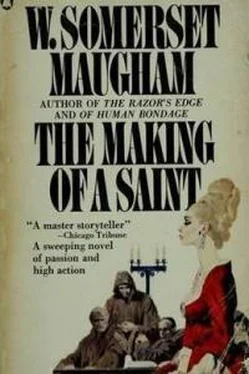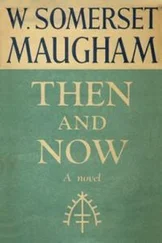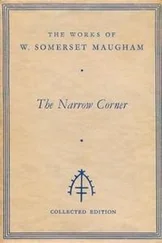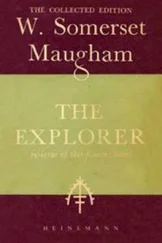'Your thoughts seem to be inclining to one foreign master or another. But my thoughts are inclining to the Liberty, in whose name the town has been won.
'Let us maintain the Liberty which these men have conquered at the risk of their lives….
'Why should we doubt our ability to preserve the Liberty of our ancestors? Why should we think that we, who are descended from such fathers, born from their blood, bred in their houses, should have degenerated so far as to be incapable of seizing the opportunity which is presented to us?
'Let us not fear that the Mighty Monarch, who defends and protects him who walks the path of the Just, will fail to give us spirit and strength to introduce and firmly to implant in this city the blessed state of Liberty.'
At the end of the sentence Antonio Sassi paused to see the effect on his auditors.
He went on,—
'But as the example of Our Master has shown us that the shepherd is necessary for the preservation of the flock; and as He seems to point out our guardian by the success which He has granted to his arms in the extermination of the Wolf, I propose that we surrender our Liberty to the hands of him who is best able to preserve it—Checco d'Orsi.'
A cry of astonishment burst from the Councillors. Was this Antonio Sassi? They looked at Checco, but he was impassive; not even the shadow of a thought could be read on his face. They asked themselves whether this was pre–arranged, whether Checco had bought his enemy, or whether it was a sudden device of Antonio to make his peace with the victor. One could see the agitation of their minds. They were tortured: they did not know what Checco thought. Should they speak or be silent? There was a look of supplication in their faces which was quite pitiful. Finally, one of them made up his mind, and rose to second Antonio Sassi's motion. Then others took their courage in both hands and made speeches full of praise for Checco, begging him to accept the sovereignty.
A grave smile appeared on Checco's face, but it disappeared at once. When he thought there had been sufficient talking he rose to his feet, and, after thanking his predecessors for their eulogies, said,—
'It is true that we have conquered the city at the risk of our lives; but it was for the city, not for ourselves…. No thought of our own profit entered our minds, but we were possessed by a grave sense of our duty towards our fellowmen. Our watch–words were Liberty and the Commonweal! From the bottom of my heart I thank Antonio Sassi and all of you who have such confidence in me that you are willing to surrender the town to my keeping. In their good opinion I find a sufficient reward for all I have done. But, God knows, I have no desire to rule. I want the love of my fellow–citizens, not the fear of subjects; I look with dismay upon the toils of a ruler. And who would believe in my disinterestedness when he saw me take up the sceptre which the lifeless hand has dropped?
'Forgive me; I cannot accept your gift.
'But there is one who can and will. The Church is not wont to close her breast to him who seeks refuge beneath her sacred cloak, and she will pardon us for having shaken from our necks the hard yoke of Tyranny. Let us give ourselves to the Holy Father—'
He was interrupted by the applause of the councillors: they did not want to hear further, but agreed unanimously; and it was forthwith arranged that an embassy should be sent to the Governor of Cesena to make the offer. The meeting was broken up amidst shouts of praise for Checco. If he had been strong before, he was ten times stronger now, for the better classes had been afraid of the mob and angry that he should depend on them; now they were won too.
The people knew that the Council was assembled to consult on the destinies of the town, and they had come together in thousands outside the Council House. The news was made known to them at once, and when Checco appeared at the top of the stairs a mighty shout burst from them, and they closed round him with cries and cheers.
'Bravo! Bravo!'
He began to walk homewards, and the crowd followed, making the old grey streets ring with their shouts. On each side people were thronging and stood on tiptoe to see him, the men waving their caps and throwing them in the air, the women madly flourishing handkerchiefs; children were hoisted up that they might see the great man pass, and joined their shrill cries to the tumult. Then it occurred to someone to spread his cloak for Checco to walk on, and at once everyone followed his example, and the people pressed and struggled to lay their garments before his feet. And baskets of flowers were obtained and scattered before him, and the heavy scent of the narcissi filled the air. The shouts were of all kinds; but at last one arose, and gathered strength, and replaced the others, till ten thousand throats were shouting,—
'Pater Patriæ! Pater Patriæ!'
Checco walked along with bare head, his eyes cast down, his face quite white. His triumph was so great—that he was afraid!
The great procession entered the street in which stood the Palazzo Orsi, and at the same moment, from the gates of the palace issued Checco's wife and his children. They came towards us, followed by a troop of noble ladies. They met and Checco, opening his arms, clasped his wife to his breast and kissed her tenderly; then, with his arm round her waist, the children on each side, he proceeded towards his house. If the enthusiasm had been great before, now it was ten times greater. The people did not know what to do to show their joy; no words could express their emotion; they could only give a huge deafening shout,—
'Pater Patriæ! Pater Patriæ!'
After a while the formal embassy sent to Cesena came back with the message that the Protonotary Savello had been filled with doubts as to whether he should accept the town or no; but seeing the Forlivesi firm in their desire to come under the papal rule, and being convinced that their pious wish had been inspired by the most High Ruler of Kings, he had not ventured to contradict the manifest will of Heaven, and therefore would come and take possession of the city in person.
Checco smiled a little as he heard of the worthy man's doubts and the arguments used by the ambassadors to persuade him; but he fully agreed with Monsignor Savello's decision, thinking the reasons very cogent….
The protonotary was received with all due honour. Savello was a middle–sized, stout man, with a great round belly and a fat red face, double–chinned and bull–necked. He had huge ears and tiny eyes, like pig's eyes, but they were very sharp and shrewd. His eyebrows were pale and thin, so that with the enormous expanse of shaven cheek his face had a look of almost indecent nakedness. His hair was scanty and his crown quite bald and shiny. He was gorgeously dressed in violet. After the greetings and necessary courtesies, he was informed of the state of things in Forli. He was vexed to find the citadel still in the hands of the Castellan, who had been summoned with great courtesy to surrender to the papal envoy, but without any courtesy at all had very stoutly declined. Savello said he would speak to the Countess and make her order the Castellan to open his gates. I was sent forward to inform Caterina of the last occurrences and of the protonotary's desire for an interview.
The Countess had received apartments in the Orsi Palace, and it was in one of these rooms that the good Savello was ushered.
He stopped on the threshold, and lifting up his arm stretched out two fingers, and in his thick, fat voice, said,—
'The peace of God be upon you!'
Caterina bowed and crossed herself. He went up to her and took her hand in his.
'Madam, it has always been my hope that I should some day meet the lady whose fame has reached me as the most talented, most beautiful, and most virtuous of her time. But I did not think that the day of our meeting would be one of such bitterness and woe!'
Читать дальше











